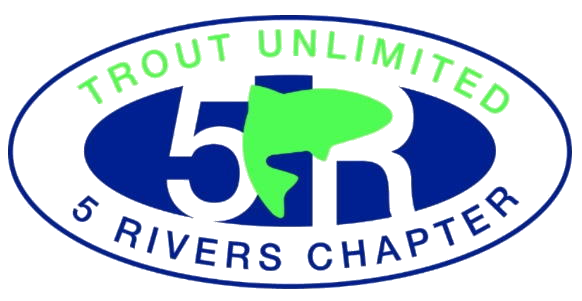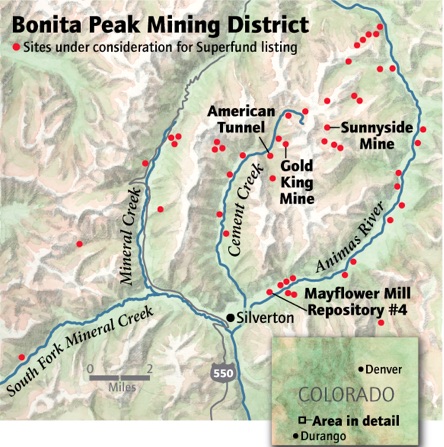To be informed is to be empowered
Photo Credit: Michael Bencic
Trout Unlimited is a grassroots organization. That means that our success depends upon the active participation of individuals like you. Our members are our organization.
Besides volunteer work, there are others ways to be engaged in key issues that affect our community. Sometimes it’s as simple as signing up for email notifications to stay informed of important issues, or voicing your concerns to your representatives at a local, state or national level. Being informed means being able to hold decision makers more accountable
Colorado Oil and Gas Conservation Commission: Wildlife Protection
In October 2020, the Colorado Oil and Gas Conservation Commission (COGCC) – the state board that approves drilling permits and regulates the oil and gas industry - will amend its rules for permitting oil and gas sites in Colorado. Your voice is needed to ensure that wildlife protection is prioritized in these amendments.
This rulemaking is required by Senate Bill 19-181. Among other major reforms, SB 181 changed the agency’s mission by directing the COGCC to safeguard wildlife and its habitat against the potential negative impacts of oil and gas development and clarifying that the COGCC may deny a permit application if its approval would not protect wildlife, the environment, or public health, safety, or welfare.
Click her to learn more as well as see how you can comment.
Mountain Studies institute: post 416 fire study
Animas River and Hermosa Creek Water Quality Conditions Following the 416 Fire
Bonita Peak Mining District Superfund
A citizens group has been established to provide direct input to the Environmental Protection Agency with regard to the Bonita Peak Mining District Superfund site. The Superfund consists of nearly 50 mine-related sites around Silverton that contribute to the degradation of water quality in the Animas River watershed.
To stay informed, sign up for emails from the Bonita Peak Mining District Advisory Group. You’ll receive meeting notices, updates and documents, as well as notification of opportunities to participate at all levels of the process.
abandoned mines are a big problem
Old abandoned mine site near Silverton
Mining has been conducted throughout the country for nearly 150 years, but most occurred before the advent of current environmental regulations. Many historic mining operations were abandoned without being adequately reclaimed or safeguarded against future environmental damage. According to the Environmental Protection Agency (EPA), 40 percent of our western headwater streams are affected by toxic runoff from abandoned mines. While today’s mining practices are much improved, the potential for problems remain
Est. number of abandoned mines in the U.S. 500,000
Est. miles of rivers affected 100,000
Est. cost to clean-up $73 billion
Source: Trout Unlimited
The number of mines that are causing or have potential to harm the environment is unknown, but is generally believed to be about 5 to 10% of the half million sites – so somewhere from 25,000 to 50,000 that need remediation of some kind. (Source: EPA)
As an organization, at both the national and local level, we’re working with the EPA, BLM, USFS and state mine remediation agencies to clean up certain types of abandoned mines where the current laws allow. We are also working to establish new laws to prevent perpetually discharging mines from being permitted in the first place.
Good Samaritan Legislation
When the post-Civil War mining industry declined in in the first half of the 20th century, they left roughly 500,000 abandoned hardrock mine sites in the American West where there is no responsible party to be held liable for the pollution or to take on the cleanup. A hundred years later and many of these mines continue to discharge heavy metals into nearby streams to this day.
Some well-qualified conservation organizations, watershed groups and state mine remediation agencies want to tackle the perpetual pollution from these abandoned mines. However, they are dissuaded from doing so by the risk of being saddled with permanent liability for pollution they didn’t create. Essentially, if “Good Samaritans” attempt to treat mine water at sites where there is no responsible party, the Good Samaritan assumes that liability forever. Good Samaritan legislation hopes to relax the water quality standards that a cleanup is required to meet, as a 100% reduction of metals is often not feasible.
2105 Gold King mine spill
The potential Good Samaritan law would allow very well-qualified entities to utilize passive treatment systems to make improvements to water quality at abandoned mines without being held permanently liable for a problem they didn’t create. Additionally, Good Sam would authorize partial cleanups where less than 100% of the pollutants would be removed without the fear of being fined by EPA for not meeting water quality standards.
Trout Unlimited strongly believes that any improvement is worth pursuing and that some reduction of metals is better than none at all. To learn more, click here.






